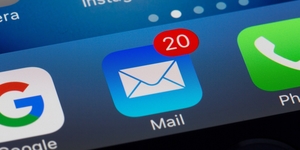
Numerous businesses rely on email technology to communicate internally, contact clients, and help market their business. Email has increased multitasking and efficiency in the business world to unimaginable levels.
5 business email etiquette useful insights
-
Leave the "To" Field Blank
Leave the "To" field blank until you have completed the email in its totality. It could prevent you from sending an incomplete e-mail, or sending an e-mail prematurely before giving yourself a chance to prove it one last time, or, if you are including attachments, not forgetting to include them.
-
Use Subject Lines That Motivate
The subject line you use can make or break an e-mail. Remember, your subject line needs to be a short, sweet, and to-the-point summary of your email. If your email is internal, abbreviations can be agreed upon to make subject lines more efficient.
-
Keep Your Emails Brief And By Subject
If someone wanted to read a novel, they would head to their local library. Therefore, keeping things short is for your own sake when it comes to business emails. With that being said, write in bullet format as often as possible and keep your sentences and paragraphs concise and straightforward.
-
Be Aware of Your Tone Or Attitude
So many of the verbal nuances that listeners can take cues from to understand sarcasm, light-heartedness, anger, or other emotional stuff are lost in email. While some people are more adept at reading tone in text, most people are not. That’s why keep your emails as neutral sounding as possible to avoid misinterpretation.
-
Consider Emails As Business Letters
All early email contacts—especially first-time emails—should be approached as though you are writing a business letter. Be professional, avoid abbreviations, and do not use smiley faces.
Conclusion
The spread of email in today's business world has led to the degradation of email etiquette. While the debate over informality versus formality is a subjective matter, in the business world, it is safer to write formal emails that get right down to business in a concise form. This is particularly true for emails to new first-time prospects or clients, where humour, informality and spelling mistakes risk presenting you as careless.



